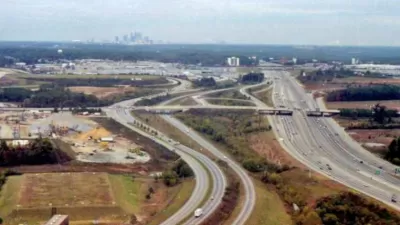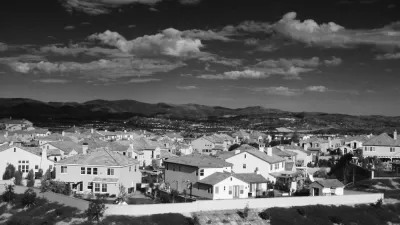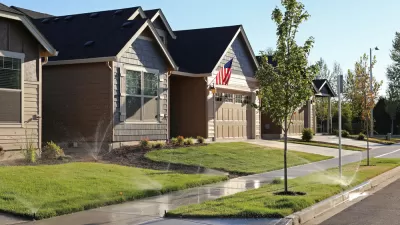Land use and transportation planning decisions provide a framework on which other social policies have created particularly isolating and intractable poverty in the South.
The fourth article in a series published last month by The Washington Post focuses on the barriers of access that make the poverty of the American South particularly isolating and difficult to overcome.
The author of the article, Chico Harlan, begins with story of Lauren Scott, a homeless, 28-year-old mother, relying on public transit to find a new job in Atlanta. On the day Harlan followed her, Scott's job search require 69 stops on a bus, a nine-minute train ride, another 49 stops on a bus, and a quarter-mile walk. According to Harlan, "this was a day much like the others, when the cost of destitution was a job hunt in which even the simplest task — placing an application — required four hours, round-trip, on a bus."
Here Harlan sums up the roots of the daily challenge faced by Scott and others like her:
"In the metropolitan areas of the Deep South, government policies and rising real estate prices have pushed the poor out of urban centers and farther from jobs. Low-income people have, in turn, grown more reliant on public transit networks that are among the weakest of quality in the country. When they search for work, they step into a region where pay tends to be low and unemployment tends to be high."
The magazine feature-style article focuses a lot more on Scott's experience of falling into poverty in the service of making large points about the unique qualities and causes of poverty in the contemporary South—a particularly isolating form of poverty exacerbated by the structure and systems of Southern communities.
FULL STORY: A lonely road

Trump Administration Could Effectively End Housing Voucher Program
Federal officials are eyeing major cuts to the Section 8 program that helps millions of low-income households pay rent.

Planetizen Federal Action Tracker
A weekly monitor of how Trump’s orders and actions are impacting planners and planning in America.

Ken Jennings Launches Transit Web Series
The Jeopardy champ wants you to ride public transit.

USDOT Waters Down Self-Driving Car Regulations
The agency is reducing reporting requirements for autonomous vehicles and cars with self-driving features, prompting concern among safety advocates who say transparency is essential to the safe deployment of AV technology.

‘Minnesota Nice’ Isn’t so Nice When You Can’t Find a Place to Live
The Economic Development and Housing Challenge Program can help address the scourge of homelessness among Indigenous people.

NYC Open Streets Organizers Call for City Support
The number of open streets projects has dropped year after year as volunteer groups struggle to fund and staff them.
Urban Design for Planners 1: Software Tools
This six-course series explores essential urban design concepts using open source software and equips planners with the tools they need to participate fully in the urban design process.
Planning for Universal Design
Learn the tools for implementing Universal Design in planning regulations.
Heyer Gruel & Associates PA
Ada County Highway District
Institute for Housing and Urban Development Studies (IHS)
City of Grandview
Harvard GSD Executive Education
Toledo-Lucas County Plan Commissions
Salt Lake City
NYU Wagner Graduate School of Public Service





























